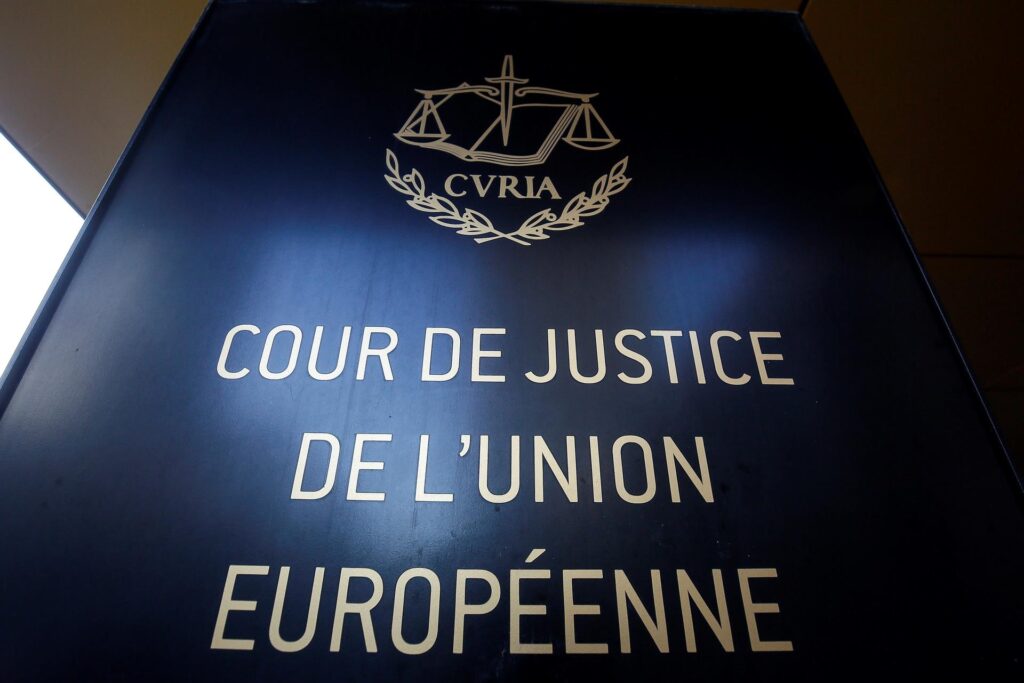05.02.2023 - 21:40
When the Court of Justice of the European Union (CJEU) had to deal with a set of prejudicial questions upon request by judge Pablo Llarena (Supreme Court of Spain), with crucial effects for the case of Catalan exiles and the European arrest warrant system, it had a fundamental choice to make. It could don its European integration hat –a hat it has worn for much of its existence, striving to further this common goal, eliminating unwarranted boundaries and obstacles between EU member states to fostering judicial cooperation, harmonizing market rules, and facilitating trade and the movement of persons. Had it worn that hat, it would have insisted that courts of different member states trust each other and execute European arrest warrants automatically without further scrutiny or substantial revision. This was, after all, the point of the European arrest warrant mechanism (EAW) created in 2002: to move to an integrated space of justice, focused on judicial cooperation based on mutual recognition and trust, distinct from the classical forms of extradition at the (political) discretion of each country’s government. The presumption underlying this model is that all state members in the EU are full democracies and take seriously fundamental rights enshrined in the European Convention of Human Rights and in the Charter of Fundamental Rights of the EU.
Instead, the CJEU chose another hat –the constitutional hat. This is a more recent one, bolstered by the Charter on Fundamental Rights and the Lisbon Treaty of the beginning of the 2000s. It is the hat of a court that erects checks on the actions of governments and ordinary domestic courts, of a court that defends individual rights against the raison d’Etat, of a court that interprets the law in ways that allow for the protection of minorities and vulnerable groups in the face of objective risks for the rights of its members derived from authoritarian or repressive compulsions of powerful majorities. It is this protective function that justifies the central role constitutional courts play in many countries today. In 1938 the US Supreme Court put this most cogently in the now famous Footnote four of United States v. Carolene Products Company: “Prejudice against discrete and insular minorities […] tends seriously to curtail the operation of those political processes ordinarily to be relied upon to protect minorities […] and it may call for a correspondingly more searching judicial inquiry.”
Constitutional courts have a particular role to play here, in increasing the scrutiny in cases affecting minorities or “objectively identifiable groups” (OIG), in the concept used by the CJEU to point at shared identity traits (such as nationality, ethnic belonging, or the defence of a political ideology seen as subversive). This is not because constitutional courts are necessarily wiser than the rest of us, but because they have a dedicated mission to uphold fundamental rights that are the pillars of the EU architecture. Rights are trumps here, as legal philosopher Ronald Dworkin famously put it; they trump even legislative acts in a liberal democratic community made up of free and equal individuals. This special role may be less necessary in homogenous contexts in which minorities are contingent, so to say, and have the prospect of one day becoming majorities (in a functioning democracy, it is the constant potential for change that constrains excesses). But this potential is not there for structural minorities in multinational, multi-ethnic or multilingual countries – ethnic, racial, linguistic, national or other distinct social groups which might be too small, vulnerable or systemically disadvantaged by more powerful majorities. It is these groups which, in the view of the US Supreme Court and much constitutional theory since, require special protection by the courts, and especially by the highest, constitutional courts. The higher level of scrutiny is warranted when discriminatory or biased decisions by institutions controlled by dominant, more powerful groups can be suspected. As John Stuart Mill argued in his seminal essay On Liberty, the risk of a tyranny of the majority is an inherent weakness of majority rule. In other words, the risk in democracy is the potential for oppression of minority factions or political dissidents unless the core of this political system appeals to a broader, more inclusive, dimension of politics. Hence a substantial (not just procedural) conception of democracy, which grants a critical role to human rights, is key to enabling courts to act as ‘countermajoritarian’ protectors of vulnerable groups –a core aim of judicial review as argued by renowned American constitutional theorist, John Hart Ely.
With its decision in the case brought by the Spanish Supreme Court, the CJEU places itself firmly into this constitutional tradition. There are obviously nods in the direction of the European, integrationist approach. The Court clearly seeks to maintain a core of the EAW and of judicial cooperation by rejecting the attempt, made by the Belgian court in its rejection of the surrender of Lluís Puig, to question the competence of the Supreme Court in this case on the basis of Spanish law. It also decisively rejects any attempt by national courts to deny the execution of arrest warrants exclusively on the basis of their own, national law. It is these aspects that have led Spanish commentators to see the decision of the CJEU as a victory for the Supreme Court. But this thoroughly misunderstands the judgment because the core of it is an emphasis on human rights limits and on the exceptions to the rule. This becomes most obvious if one goes beyond the simplistic headlines and analyzes the reasoning of the Court in detail. It is here that the constitutionalist approach finds its most stringent expression.
The most important point here is that the CJEU does not only place checks on the EAW when there are “systemic or generalized deficiencies” in the judicial system of the country that has issued the warrant. This had been the core of the previous cases, many concerning Poland, Romania and Hungary, in which the core question was whether the general deficiencies affecting the judicial system and separation of powers led to a concrete risk for the particular individual in question. In dealing with the Catalan case, the Advocate General – who plays a key role in preparing the CJEU’s judgments – wanted to follow the established approach. The Court, however, finds this too restrictive an approach. Requiring systemic or generalized deficiencies would potentially allow for a broad range of threats to human rights of members in vulnerable or marginalised groups despite an otherwise apparently well-ordered judicial system.
Now, the CJEU also wants to avoid that national courts scrutinize the human rights risks in each individual case – this would undermine the EAW system too much. So, it chooses a middle way, one in which individuals are at risk because of deficiencies or biases in the judicial system affecting an OIG to which they belong. This reflects precisely the point about constitutional courts – that their prime goal has to be to protect groups that are structurally disadvantaged from access to power (or underrepresented in mainstream institutions) and are therefore at a high risk of being discriminated. It should be remembered that the two decisions of the UN Working Group on Arbitrary Detention (WGAD) already considered the detention of political prisoners arbitrary based on the argument that the individuals were being repressed as members of specific political groups in order to silence their demands for self-determination, as had been alleged by the defence.
Through this route the Court also comes back to the question of competences – which, as mentioned before, it had said could not in itself be the reason for rejecting an arrest warrant. Yet it stresses that, in situations in which deficiencies in the judicial system for OIG have been demonstrated, a lack of competence can be sufficient grounds for a rejection of the arrest warrant if it is “manifest” and if the rejecting court has previously asked the court that issued the warrant to clarify the situation under its own law. Contrary to what the headlines of the judgment suggest, the CJEU is very careful not to close entirely the door on this issue.
The CJEU is very similar in its response to the question of whether a national court can keep issuing arrest warrants repeatedly. The summary suggests that it can, and this seems to favour judge Llarena. But the fineprint tells us the contrary. For the CJEU says that, in principle, a court cannot simply reissue a warrant if it has been rejected by another court. It can only do so if the circumstances have changed, and even in that case a new warrant is barred if it would violate fundamental rights of the accused and would be disproportionate. This means that the Spanish Supreme Court faces clear limits now – if it issues a new arrest warrant and it is rejected by, say, the Belgian courts, it cannot simply issue another one when its target is in another country, hoping that that country’s courts might be more inclined to the Spanish position. Here, too, the CJEU has imposed important restrictions on the use of the EAW – very much contrary to what the Supreme Court had hoped it would get in response to its question.
That the CJEU pursues such a constitutional approach in this case is not just a matter of its own choice, however. Ever since the introduction of the EAW, the constitutional courts of several member states, such as the German one, have questioned its compatibility with fundamental rights principles. They were especially critical of the idea that their own courts would not be able to exercise human rights scrutiny when deciding on whether to surrender a suspect – a point very much pushed by Spain with a view to obtaining the surrender of ETA suspects. The CJEU needed to accommodate the position of the constitutional courts and create greater space for exceptions – or else it would run the risk that the EAW would be invalidated in different member states altogether. This has become yet more virulent since the attacks on judicial independence in a number of member states, especially in Poland, which has further undermined the mutual trust among courts across the EU. Such trust, however, is at the heart of the overall system and without it, courts will insist that they need to “trust but verify” – that is: verify whether rights are actually protected before they extradite accused persons. The approach of the CJEU is then also a way of deflecting challenges from national (constitutional) courts.
Trust, obviously, cannot simply be equated to blind reliance, as this can lead to human rights abuses. This point has become more central in the current situation of rising populism and a backlash against democracy and human rights, which are often threatened not by blunt authoritarian coups, but rather by autocrats subverting the system from within and targeting political dissent by criminalising minorities under a perverse “national security” paradigm. The role of international human rights courts in counteracting this backlash is crucial. In the context of political disputes like the one between Catalonia and Spain, where judicial decision-making ends up reproducing dominant societal prejudices and criminalising legitimate political demands of self-determination, international courts are key to preventing the tyranny of the majority.
The focus on risks for OIG makes sense within this “constitutional” approach, and it also creates links with broader views in the international legal community. The CJEU leaves it to each national court to assess whether there are such deficiencies for a particular group, but this assessment has to be based on “reliable, precise and sufficiently updated elements”. As the CJEU highlights, such elements can be judgments of the European Court of Human Rights, documents of the Council of Europe or findings of bodies of the United Nations. As a result, the decision of the UN Working Group on Arbitrary Detention (WGAD) may not be decisive in and of itself, but it can be “taken into account” in this assessment.
This shows clearly how important it is to pursue international avenues to confirm and objectify the Catalan actors’ complaints of repression and human rights violations committed by Spain – violations that are not just against individual (unrelated) persons, but against individuals who are leaders or active members in this specific group. Back in the Autumn of 2017, when we suggested a model of strategic human rights litigation in different fora, bringing cases to the United Nations Human Rights Committee and the WGAD, besides drafting serious reports for the Special Rapporteurs, many involved in the defence of Catalan political prisoners dismissed those efforts. It took significant efforts to even convince victims of the need to report them together, to commit to a common, unified legal strategy that put fundamental human rights at the forefront: the rights of members in a specific group of Catalans claiming the collective right of all peoples to self-determination of Article 1 ICCPR. The point of this strategy was precisely to unveil the politics of fear and repression, of criminalisation of political rights, by Spain’s executive and judicial powers. Its goal is not merely to achieve the release of the prisoners, and the return of Catalan exiles, but to expose the conflict and the rights violations, achieve an active engagement and condemnation by international organisations that could lead to ending state’s impunity and to reclaiming the political nature of the conflict. Political and civil society leaders, and members of the movement, should be free (not just free from prison or pardoned for their supposed crimes) and the struggle for self-determination and independence recognised as a legitimate political cause.
Yet the usual response for much of this time has been one typical of formal standard lawyering focused on individual clients: decisions from such bodies, we were told, would not be binding, and a “political” defence (as opposed to a “technical” one) was risky. Even if we achieved a positive judgment, it would surely not lead to compliance by Spain, and such attempts would not be worth the cost and effort. That is why even when the outcome came out as positive it wasn’t sufficiently vindicated in domestic courts by criminal lawyers. As a result of this myopic view, many cases that could have been brought to the UN (and also to the European Court of Human Rights) have not been lodged. In some cases, there were fewer applicants than there could have been, thus weakening the impression that these are collective cases: cases showing systemic problems and group-based oppression lead by nominally democratic courts, rather than isolated individual rights violations.
In the judgment of the CJEU we can see how misguided such reluctance by some actors to pursue an international strategy of human rights litigation has been. For it is precisely findings by independent, impartial human rights bodies that foreign and international courts look to when they are asked to set aside their general understanding that Spain is a functioning democracy. The Belgian court, too, looked to the findings of the WGAD in its decision not to surrender ex-Catalan Minister Mr. Lluís Puig, to the Spanish Supreme Court. And the judgment on the preliminary questions specifically states that it is insufficient to have reported the violation of fundamental rights at the domestic level to reject the EAW. Human rights are not political, they are legally binding and their interpretation and scope of application increasingly technical: at the international level human rights claims are embedded into a complex web of legal knowledge and jurisprudence of international courts that are in permanent dialogue.
Now, we have begun to weave a web of international condemnation – through the WGAD, through the court of Schleswig-Holstein in the proceedings concerning President Puigdemont, and through the UN Human Rights Committee with its condemnation of Spain for the suspension from parliament of independence leaders. But we would need many more such findings – and broader public advocacy – to shatter the trust of many in the rule of law in Spain.
This is what the crucial struggle from the exile in Brussels, led by President Puigdemont, is about: not to surrender to a “happy solution” which, as the individualised pardons, would only be positive from an individual perspective, but never from a collective one. Instead, exposing the nature of the human rights violations associated to the non-democratic, repressive approach to Catalans who support an independent Catalonia requires confronting the state about these human rights violations and demand freedom and reparations. This avenue might over time force other European courts and international bodies to recognize that the Catalan independence movement is indeed an OIG in need of external protection. Only by generating a broad consensus on this outside of Spain we can eventually generate more support for the cause of self-determination of Catalonia.
Oppression and discrimination, as social processes, affects typically groups and occur as a consequence of systemic disadvantage relating to broader group-based injustices irreducible to individual agency and responsibility. By pointing to this relational group logic of discrimination, the CJEU has allowed for a more intense degree of scrutiny to unveil the multifaceted forms of oppression Catalans suffer as a group. This is a first step –now national courts must make use of the space provided by Luxembourg. But it is an important step, and certainly not the one Pablo Llarena had hoped for.




